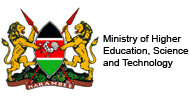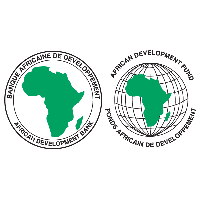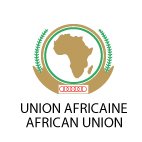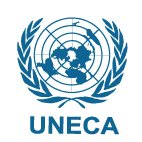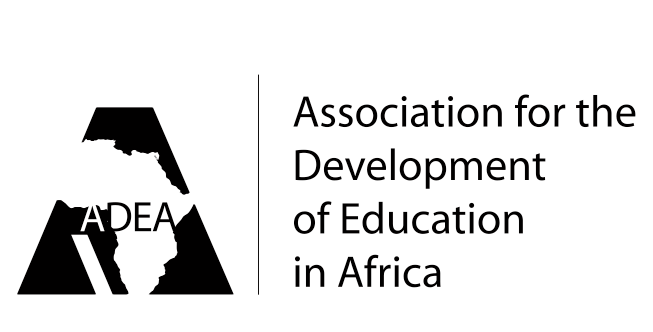Amazing Africa or Africa on the edge?

The relevance of collaboration between government, academia, research, industry and civil society for the sake of development cannot be overstated, says Sara Farley. It is essential for progress.
No longer can domains of knowledge – agronomy, biology, architecture, mechanical engineering, hydrology, zoology exist in silos. The challenges of today – silo-busting – are however complex.Those who succeed in tackling them are the solvers of what the Global Knowledge Initiative (GKI) calls - “The Collaboration Era”. In contrast to old notions of scientific discovery and technological advance, today's reigning theory of innovation is defined by linkages, interactions and cooperation. Dubbed the “innovation system” this framework offers a way of identifying and conceptualizing innovation at a function of an enabling background, actors, the interactions between them and the outputs of solutions produced. The questions we must ask ourselves are: how much does Science, Technology and Innovation (STI) matter for Africa's future and what are the costs of low participation in global collaborative innovation networks?
Building an “Amazing Africa
Imagine two Africa's. The first we could call “Amazing Africa”. It's a place where STI is harnessed to propel economic expansion, competitiveness, and progress. In ''Amazing Africa” people live happier, healthier and not just wealthier lives.
This is a future picture in which agriculture is transformed – the full potential of biotechnology is unleashed: productivity per farmer surges. Better access to a range of technological inputs, from seeds to fertilizer to processing and production technologies sees the value per hectare of the land soar.
“Amazing Africa” is a place of smarter development policies too – STI helps planners balance land and water use with smarter management for the future. It is a continent marked by transformed human capital too: a widening base of citizenry who are science literate is paired by a surge in Science, Technology and Maths graduates – an increase met by qualified, well remunerated university professors.
They integrate research, experiential learning and open distance education in their approach to training Africa's youth. Industrial transformation is another hallmark of “Amazing Africa”: cities grow greener, efficient and affordable energy, transport and water provision systems define cities of tomorrow. Green growth means more jobs to equip cities with new infrastructure systems.
“Africa on the edge”
The alternative future is far less sunny. We could call it “Africa on the edge.” It is a continent teetering between security and instability. A place defined by neglect of STI fails to balance the economic, social, technological, and political demands that a growing population, changing climate, and increasing urbanization demand.
Ensuring we manifest ''Amazing Africa” is within our reach, but it takes harnessing the power of collaborative innovation. For some, visualizing practical examples of an innovation system approach can be difficult. One example from GKI illustrates the point.
Saving Rwanda's coffee gains
Meet Dr. Daniel Rukazambuga, Dean of the Faculty of Agriculture at the National University of Rwanda. Through a partnership between RUFORUM (the regional university forum on capacity building in agriculture and climate) and GKI, Daniel posed a challenge he seeks to address through partnership.
Specifically, a defect called “potato taste”—thought to be caused in part by the “antestia bug”— threatens to deter international buyers from purchasing Rwandan coffee. Unaddressed, incidence of potato taste may roll back the gains experienced in the sector.
Fifteen years ago, post-genocide development efforts zeroed in on rebuilding the coffee sector as a critical step forward out of the ashes. The results of investments in capacity building, technological improvements and research: Smallholder farmers saw their coffee profits leap from 20 cents per kilo to $2.00 per kilo, mainly through quality improvements.
The Rwandan government and its partners harnessed STI to attain many of these transformations. Now, these gains are at risk. Determining the specific cause of potato taste constitutes one major challenge faced by the team. Currently, there is no definitive link between potato taste and antestia bug, only hypotheses.
Tapping into a research network
Through the Global Knowledge Initiative’s Learning and Innovation Network for Knowledge and Solutions (LINK) Program, GKI helps researchers and others locate critical resources required for scientific research, teaching, and innovation to address shared challenges. We then enable partners to collaborate through competitions, trainings, and capacity building initiatives.
Finally, we connect resource seekers together with the global network of problem solvers to bring solutions to scale. This novel approach to building purpose-driven networks capable of collaborative innovation is being scaled across Africa, Asia, the US, and elsewhere by the Global Knowledge Initiative, with a third call for LINK challengers underway for East and Southern Africa.
After becoming GKI’s premier LINK round one winner in East Africa, to the delight of Rwandan farmers and global coffee buyers, a team of researchers from three continents developed and started implementing an integrated strategy to solve a mysterious taste defect sometimes found in Rwanda’s specialty coffee.
By magnifying the efforts of Daniel’s team, no fewer than 17 institutions—national, international, private, public, and farmer-owned—are united in their efforts. The team’s goal: ridding Rwanda’s world class specialty coffee of this taste defect.
Committing to the potato challenge
Under the auspices of GKI, for over a year a series of trainings have helped the students, faculty, and core partners in Rwanda learn new ways to clarify the context for partnership and unearth the resources required to solve their challenge.
More recently, in January 2012 partners participated in a two-week program aimed at developing a multi-pronged strategy to solve the potato taste challenge. The strategy involves three interrelated thrusts: determine the cause of the potato taste defect, understand the relationship between ecological conditions and the defect, and build Rwanda’s capacity to solve this challenge.
Just one month after the strategy was developed, collective action is underway. Antestia bug samples have been shipped to US-based labs for analysis; France’s agricultural research agency CIRAD is working to determine the exact chemistry of the potato taste; and an NUR research team is monitoring ecological patterns using weather-monitoring devices donated by US partners.
At the core of this purpose-driven network is an international team composed of some of the world’s most talented and committed solvers germane to the coffee challenge. Upon being identified by GKI and compelled by the urgency of this challenge, France’s Dr. Christian Cilas, head of the Pests and Diseases, Risk Analysis and Control Unit at CIRAD and the US’ Dr. Thomas Miller, an entomologist at the University of California, Riverside agreed to apply their expertise to this development challenge, buoying the work of the NUR group.
Three collaborative innovation experts from GKI convened these scientists together with a diverse cross-cut of the development community to organize this collective approach to responding to the potato taste challenge.
“We can tackle the world's toughest problems''
Evidence is demonstrating the value of such global collaborations, like LINK. Underpinned by the belief that process often gets short shrift in learning how to solve problems, LINK stresses the “how” over the “what.”
By fortifying researchers, entrepreneurs and policymakers with a shared set of process skills in collaborative innovation, we believe we can radically accelerate the delivery of solutions. Through our work in fostering, optimizing and sustaining knowledge networks, African researchers and innovators can join the global tapestry of challengers and solvers united toward tackling the world’s toughest problems.
For more information on GKI’s recent work in Rwanda contact Chief Operating Officer
Sara Farley at sara@gkinitiative.org .

